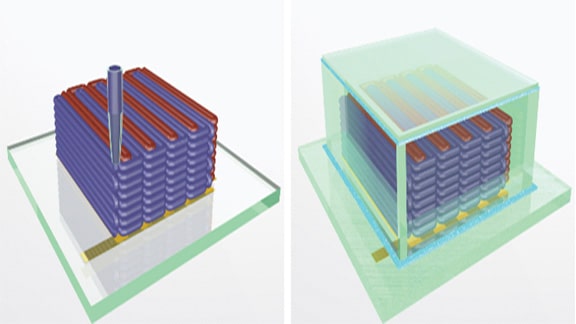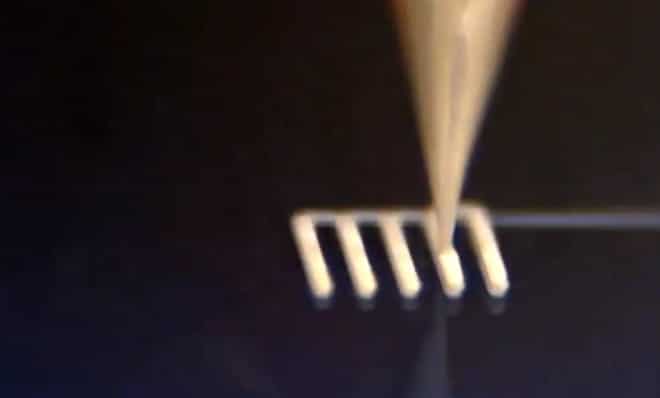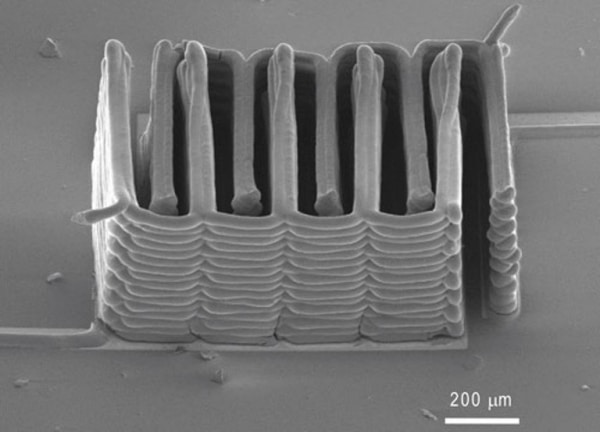Everyone knows that without batteries, all our favorite gadgets are of no use. It’s the constant bane of any mobile device user. Even though development has pushed them to last longer, they still don’t last long enough. I am sure almost every single one of you has felt the annoyance of having your batteries run out. Soon we could all rid ourselves of that annoyance when this insanely impressive 3D printed battery technology finally starts producing batteries.
The impact that 3D printing has had so far and will continue to have in the future is more than mind boggling. We might be impressed with the things 3D printing is capable of right now, but the future has far more impressive things in store for us. That is something the scientists over at Harvard and the University of Illinois are showing us today since they recently unveiled a new groundbreaking 3D printed battery technology that spawned from 3D printing.
What makes this 3D printed battery technology a reality is a special 3D printer that uses a special kind of ink that has just the right electrochemical properties in it, which allows it to immediately harden as soon as it’s applied to the layer beneath it. This makes for a much more optimized and controllable way of putting together batteries and shrinking their size to that of a grain of sand.
These Li-Ion microbatteries, as they have been dubbed, are highly comparable to conventional batteries in their life expectancy, energy density, and charge and discharge rates. Since the real optimization is their groundbreaking size, these microbatteries could come to revolutionize the size and battery time of new gadgets within the near future. Today smartphone batteries take up the majority of space inside the shell, which leaves developers cramped for space when it comes to adding new and innovative features to new smartphones. In the future though, this 3D printed battery technology could allow for more ingenuity and features within our ever more powerful smartphones.
3D Printed Battery Technology – Li-Ion Microbatteries
Via: [Popsci]



COMMENTS